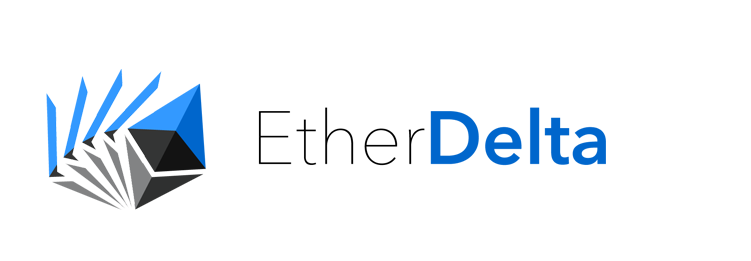
EtherDelta
Taxas da Bolsa
Métodos de Depósitos
Criptos Suportadas (43)
UPDATE 23 March 2023: When trying to access the website of EtherDelta today, we were unsuccessful. As far as we know, there have been no preceding messages on system maintenance or new websites or anything similar. We are met with the following error message when trying to access the website:

Accordingly, we believe that this exchange has closed down and we have marked it as "dead" in our Exchange Graveyard. If the exchange's website would become accessible again and the error is just temporary, we will "revive" it and bring it back to our Exchange List.
To find a reliable exchange where you can start an account, just use our Exchange Filters and we'll help you find the right platform for you.
EtherDelta Review
What is EtherDelta?
EtherDelta is a so called “decentralized exchange”. This decentralized exchange lets you trade Ether and Ethereum-based tokens directly with other users. Decentralized exchanges are becoming increasingly more popular. They are definitely gaining market shares against their centralized counterparts.
EtherDelta has been active since 2016.
General Information on DEXs
Decentralized exchanges do not require a third party to store your funds. Instead, you always directly control your coins and you conduct transactions directly with whoever wants to buy or sell your coins. Decentralized exchanges normally do not require you to give out personal information. This makes it possible to create an account and right away be able to start trading. The servers of decentralized exchanges spread out across the globe leading to a lower risk of server downtime. However, decentralized exchanges as opposed to regular top crypto exchanges normally have an order book with lower liquidity than the regular top crypto exchanges.
Liquidity
On 13 July 2019, EtherDelta had a 24 hour trading volume of USD 39,741. On the date of last updating this review (10 September 2021), neither Coinmarketcap nor CoinGecko had any information as to the trading volume of this exchange. This is a very bad sign and could mean that the exchange has, or is about to, close down its operations.
US-investors
This particular decentralized cryptocurrency exchange does not list US-investors as prohibited from trading, but US-investors should in any event do their own independent assessment of any problems arising from their residency or citizenship.
EtherDelta Trading View
Different exchanges have different trading views. And there is no “this overview is the best”-view. You should yourself determine which trading view that suits you the best. What the views normally have in common is that they all show the order book or at least part of the order book, a price chart of the chosen cryptocurrency and order history. They normally also have buy and sell-boxes. Before you choose an exchange, try to have a look at the trading view so that you can ascertain that it feels right to you. The below is a picture of the trading view at EtherDelta:

EtherDelta Fees
EtherDelta Trading fees
This decentralized exchange’s trading fees for takers are 0.30%. This fee is slightly above the industry average. The industry average is arguably around 0.25%.
However, EtherDelta does not charge any fees for makers, thus promoting the liquidity at the exchange. This is a very strong competitive edge in the market and is especially beneficial for the investors not interested in picking up existing orders from the order book but rather prefers to “go fishing” with maker-orders.
EtherDelta Withdrawal fees
EtherDelta charges a withdrawal fee amounting to 0.0001 ETH when you withdraw ETH. This is a low withdrawal fee.
Deposit Methods
EtherDelta does not accept any other deposit method than cryptocurrencies, so new crypto investors are actually restricted from trading at EtherDelta. If you don’t have any crypto but want to start trading at this exchange, you will first have to purchase cryptocurrencies from another exchange and then, as a second step, deposit them here.
EtherDelta Security
The servers of decentralized exchanges normally spread out across the globe. This is different from centralized exchanges that normally have their servers more concentrated. This spread-out of servers leads to a lower risk of server downtime. It also means that decentralized exchanges are virtually immune to attacks. This is because if you take out one of the servers, it makes little to no difference for the network of servers in its entirety. However, if you manage to get into a server at a centralized exchange, you can do a lot more harm.
Also, if you make a trade at a decentralized exchange, the exchange itself never touches your assets. Accordingly, even if a hacker would somehow be able to hack the exchange (in spite of the above), the hacker can not access your assets. If you make a trade at a centralized exchange, however, you normally hold assets at that exchange until you withdraw them to your private wallet. A hacker can therefore hack a centralized exchange and steal your funds held at such exchange. That is not possible when it comes to DEXs.